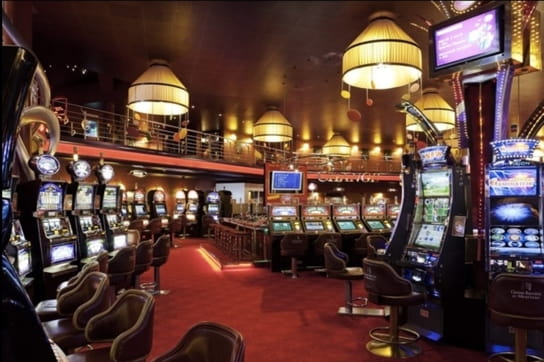Introduction
Online gambling platforms, such as Playzilla, have revolutionized the casino industry in Greece, offering players instant access to their favorite games. While these platforms provide entertainment, they also come with risks—one of the most concerning being the tendency of players to chase losses. This psychological phenomenon occurs when a gambler continues betting in an attempt to recover lost money, often leading to emotional distress, financial hardship, and even addiction.
In Greece, where gambling culture is deeply embedded in society, the problem of chasing losses is particularly significant. This article explores the psychological effects of chasing losses, why players fall into this trap, and what can be done to prevent it.
What Is Chasing Losses in Online Gambling?
Chasing losses refers to the compulsive behavior where a player, after experiencing losses, continues to gamble with the belief that they can recover their money by winning in subsequent bets. This behavior is fueled by cognitive biases, emotional reactions, and an inherent misunderstanding of probability.
Unlike strategic betting, chasing losses is often irrational and emotionally driven. Instead of making calculated decisions, players become desperate and riskier in their bets, leading to even bigger losses.
Why Does Chasing Losses Happen?
Several psychological mechanisms contribute to chasing losses, including:
- Gambler’s Fallacy – The belief that after multiple losses, a win is “due.”
- Loss Aversion – The tendency to feel the pain of losing money more strongly than the joy of winning.
- Emotional Investment – Players develop an attachment to lost money and feel compelled to “win it back.”
- Dopamine Effect – The brain’s reward system reinforces continued gambling, even after losses.
The Psychological Toll of Chasing Losses
Chasing losses is not just a financial issue—it has severe psychological consequences. Greek gamblers who engage in this behavior often experience:
1. Increased Stress and Anxiety
Losing large sums of money creates significant stress. When players chase losses, they enter a vicious cycle of anxiety, hoping for a win while fearing further losses. This chronic stress can lead to sleep disturbances, panic attacks, and mood swings.
2. Depression and Feelings of Hopelessness
Many players in Greece start gambling for fun but end up feeling trapped. When financial losses pile up, they may develop feelings of hopelessness, guilt, and self-blame. Studies show that problem gamblers are at a much higher risk of developing clinical depression.
3. Financial Despair Leading to Social Isolation
The financial burden caused by chasing losses can be devastating. Many gamblers resort to borrowing money, selling assets, or even engaging in illegal activities to fund their addiction. This often leads to family conflicts, broken relationships, and social withdrawal.
4. Impulsivity and Poor Decision-Making
Continuous gambling reduces a player’s ability to think rationally. Chasing losses leads to impulsive decisions, where players bet larger amounts without considering the consequences. This mirrors the behavior seen in other addictive disorders, such as substance abuse.
5. Increased Risk of Gambling Addiction
Chasing losses is a key indicator of gambling addiction. The more a person engages in this behavior, the more likely they are to develop compulsive gambling tendencies, making it extremely difficult to quit without professional help.
The Greek Online Gambling Landscape and Cultural Factors
Greece has a long history of gambling, dating back to ancient times. Modern Greek culture still embraces gambling, with many viewing it as a social activity rather than a risk. The rise of online casinos has made gambling more accessible than ever, leading to an increase in problem gambling cases.
Legal and Regulatory Challenges
While Greece has a regulated online gambling industry, enforcing responsible gambling practices remains a challenge. Many online casinos offer high betting limits and aggressive promotions, which can encourage players to chase losses.
Economic Pressures and Gambling Behavior
Greece has faced economic instability in recent years, leading many individuals to turn to gambling as a way to make money. This false hope of financial recovery is one of the biggest drivers of chasing losses behavior.
Breaking the Cycle: How to Prevent Chasing Losses
Stopping the cycle of chasing losses requires awareness, self-control, and external support. Here are some expert strategies to avoid falling into this psychological trap:
1. Set a Strict Gambling Budget
Decide before playing how much money you are willing to lose. Once you reach that limit, walk away, no matter what.
2. Understand the Nature of Gambling
Remember that casino games are designed to favor the house. There is no “due win,” and past losses do not increase future chances of winning.
3. Take Regular Breaks
Continuous gambling impairs judgment. Taking frequent breaks helps you reassess your financial and emotional state.
4. Avoid Emotional Gambling
Never gamble when feeling angry, stressed, or desperate. Emotional gambling leads to irrational decisions and reckless betting.
5. Use Self-Exclusion Tools
Many online casinos in Greece offer self-exclusion programs, allowing players to temporarily or permanently block access to their accounts.
6. Seek Professional Help
If gambling is negatively affecting your mental health or finances, consider seeking help from a therapist or a gambling support group. Organizations like the Greek Centre for Addictive Disorders offer confidential support and counseling.
Conclusion
The psychological effects of chasing losses in Greek online casinos are severe, leading to stress, depression, financial ruin, and addiction. Understanding the reasons behind this behavior and implementing responsible gambling strategies can help players avoid falling into this dangerous trap.
While platforms like Playzilla offer exciting opportunities for entertainment, it is crucial for players to gamble responsibly and recognize the warning signs of compulsive gambling. Awareness, self-control, and seeking professional support are the best ways to ensure that gambling remains an enjoyable activity rather than a destructive habit.

No Responses